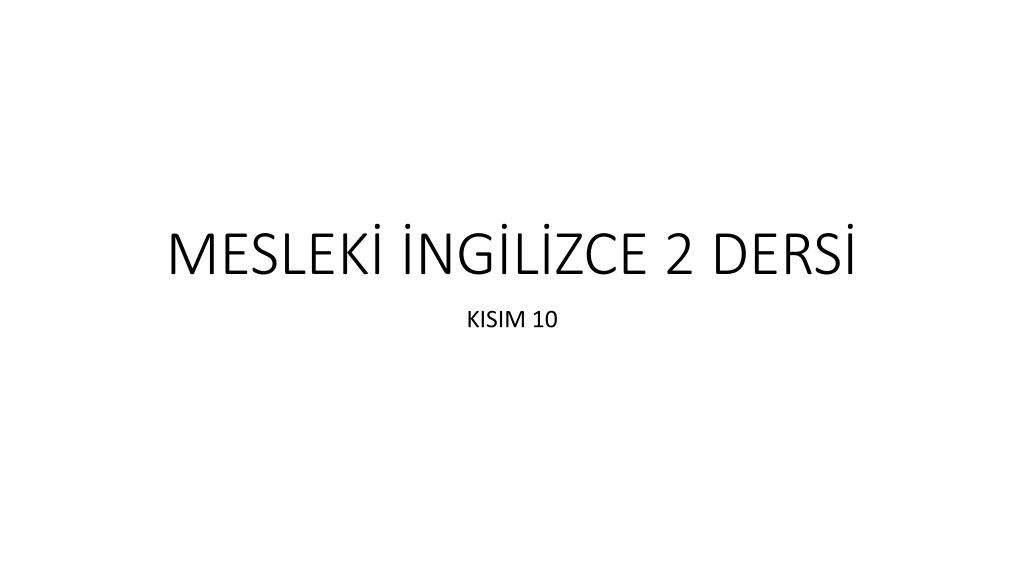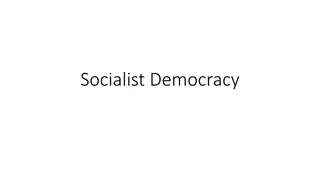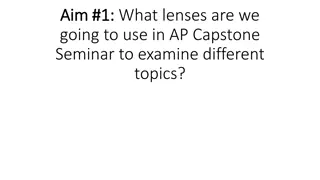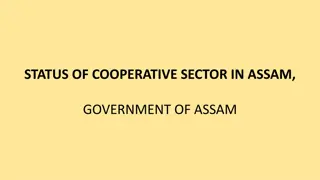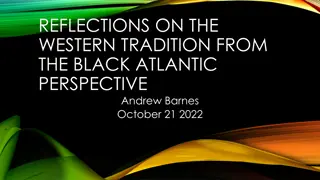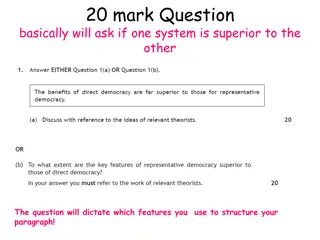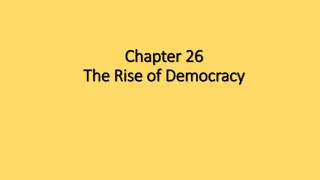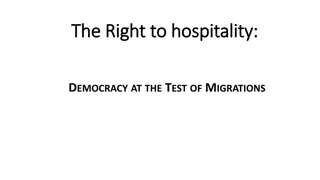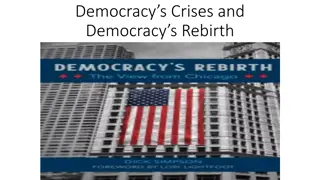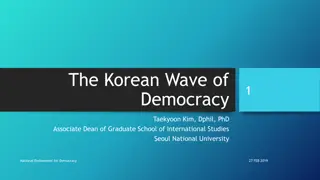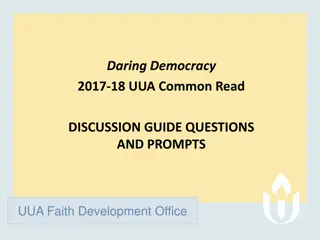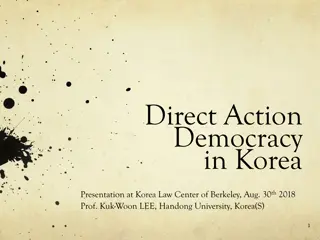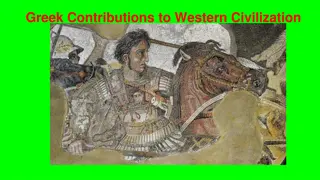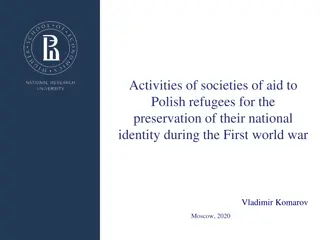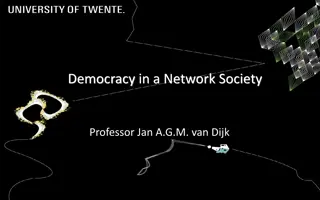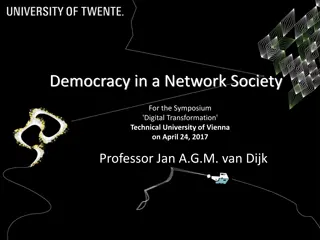Understanding Democracy in Western Societies
Democracy is a system of government where citizens exercise power through voting. It can take the form of direct democracy or representative democracy. In constitutional democracy, the majority's powers are limited by the constitution to protect minority rights. The concept of democracy entails the rule of the majority, with an emphasis on consent and collective decision-making. Western democracy has its origins in ancient city-states like Classical Athens. Key elements of democracy include free and fair elections, active citizen participation, human rights protection, and the rule of law applying equally to all.
Download Presentation

Please find below an Image/Link to download the presentation.
The content on the website is provided AS IS for your information and personal use only. It may not be sold, licensed, or shared on other websites without obtaining consent from the author. Download presentation by click this link. If you encounter any issues during the download, it is possible that the publisher has removed the file from their server.
E N D
Presentation Transcript
MESLEK NGLZCE 2 DERS KISIM 10
Democracy Democracy is a system of government where the citizens exercise power by voting. In a direct democracy, the citizens as a whole form a governing body and vote directly on each issue. In a representative democracy the citizens elect representatives from among themselves. These representatives meet to form a governing body, such as a legislature.
Democracy In a constitutional democracy the powers of the majority are exercised within the framework of a representative democracy, but the constitution limits the majority and protects the minority, usually through the enjoyment by all of certain individual rights, e.g. freedom of speech, or freedom of association
Democracy "Rule of the majority" is commonly referred to as democracy. John Locke wrote: There is no practical alternative to majority political rule i.e., to taking the consent of the majority as the act of the whole and binding every individual. It would be next to impossible to obtain the consent of every individual before acting collectively ... No rational people could desire and constitute a society that had to dissolve straightaway because the majority was unable to make the final decision and the society was incapable of acting as one body."
Democracy Democracy is a system of processing conflicts in which outcomes depend on what participants do, but no single force controls what occurs and its outcomes. The uncertainty of outcomes is inherent in democracy. Democracy makes all forces struggle repeatedly to realize their interests and devolves power from groups of people to sets of rules.
Democracy Western democracy, as distinct from that which existed in pre- modern societies, is generally considered to have originated in city- states such as Classical Athens and the Roman Republic, where various schemes and degrees of enfranchisement of the free male population were observed before the form disappeared in the West at the beginning of late antiquity. The English word dates back to the 16th century, from the older Middle French and Middle Latin equivalents.
Western democracy, According to American political scientist Larry Diamond, democracy consists of four key elements: a political system for choosing and replacing the government through free and fair elections; the active participation of the people, as citizens, in politics and civic life; protection of the human rights of all citizens; a rule of law, in which the laws and procedures apply equally to all citizens.
Democracy Todd Landman, nevertheless, draws our attention to the fact that democracy and human rights are two different concepts and that "there must be greater specificity in the conceptualisation and operationalization of democracy and human rights".
Democracy The term appeared in the 5th century BC to denote the political systems then existing in Greek city-states, notably Athens, to mean "rule of the people", in contrast to aristocracy ( , aristokrat a), meaning "rule of an elite". While theoretically these definitions are in opposition, in practice the distinction has been blurred historically.
Democracy The political system of Classical Athens, for example, granted democratic citizenship to free men and excluded slaves and women from political participation. In virtually all democratic governments throughout ancient and modern history, democratic citizenship consisted of an elite class, until full enfranchisement was won for all adult citizens in most modern democracies through the suffrage movements of the 19th and 20th centuries.
Democracy Democracy contrasts with forms of government where power is either held by an individual, as in an absolute monarchy, or where power is held by a small number of individuals, as in an oligarchy. Nevertheless, these oppositions, inherited from Greek philosophy, are now ambiguous because contemporary governments have mixed democratic, oligarchic and monarchic elements. Karl Popper defined democracy in contrast to dictatorship or tyranny, thus focusing on opportunities for the people to control their leaders and to oust them without the need for a revolution
